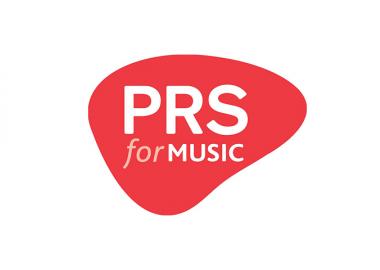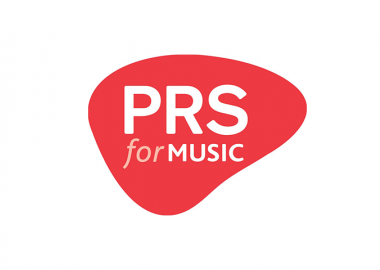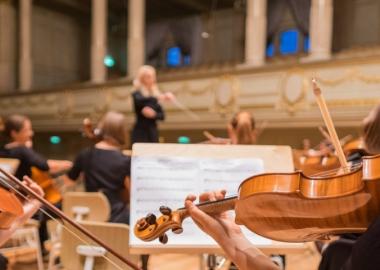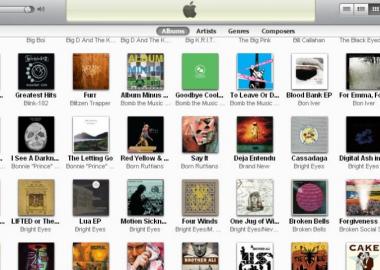This guidance will outline when you need to pay performing rights fees and how to pay them.
What are Performing Rights?
Performing Rights are the right to play or perform a piece of copyright music in public
If you are putting on a public performance of music in copyright it is your responsibility to ensure that you have permission to play the piece and that any royalties are paid. But don’t worry – it’s not as complicated as it might sound; you do not have to get permission and make a payment for each performance and to each composer individually.
PRS for Music (formerly the Performing Rights Society) is a collecting society representing the performing rights of its songwriter, composer and music publisher members in the UK. PRS for Music licenses the use of its members’ music, collects royalty payments on their behalf and then distributes them. This means any royalty payments go to one organisation rather than to the individual copyright owners. You can pay royalty fees to PRS for Music in one of three ways:
- Through your venue: they will often have a licence with PRS for Music for live performances, and will take care of royalty payments to PRS for Music for performances at their venue. This does not mean you don’t have to pay though – the venue will pass the fee onto you, but they will do the admin. There is more information on this below.
- Through your annual Making Music membership renewal: we hold an umbrella licence which covers performances by our member groups in unlicensed venues. Our PRS payment scheme helps to make things really simple, again there is more information below.
- Directly to PRS for Music: you can pay them directly – this may apply to Making Music members who are festivals.
Recorded Music: this guidance will focus on the royalty payment aspect of live performing rights only. If you play recorded music in public you will almost certainly need a licence from both PRS for Music and Phonographic Performance Limited (PPL), the collecting society responsible for licensing sound recordings on behalf of record companies and performers. You can find out more on the PPL website.
How to find out if you owe royalties for a performance
Step one – check if it is a public performance
Music is performed ‘in public’ when it is performed outside what could be regarded as the domestic circle or home life. This means an event which is not in the privacy of your own home and is not a ‘family’ gathering. You can find further information on the PRS website.
It does not matter if the event is free of charge, taking place outside or limited to only group members – if it is taking place outside the domestic circle or home life, it is a public performance and royalties may be due (assuming the work is in copyright).
A common query we have and a good example is: a group have an end of term get together for members and invited guests. It is in a village hall, free, invite only and not open to the public. The get together involves a sing-song around the piano: this would be classed as a public performance.
However, there are some exceptions:
PRS exceptions to public performance
Music used in wedding ceremonies, civil wedding ceremonies and civil partnership ceremonies: PRS for Music, at its discretion, does not charge for music use as part of official wedding ceremonies or similar, in whatever premises the ceremony takes place. This includes:
- Religious ceremonies
- Civil ceremonies
- Civil partnership ceremonies
PRS for Music does not make a charge for functions of a purely domestic or family nature, such as wedding receptions, christening parties or domestic birthday parties, when:
- Attendance of guests is by personal invitation only (except for staff, performers, etc.)
- The function is held in a privately-booked room, not at that time open to the general public
- There is no form of charge made for admission
- There is no financial gain to the function’s organiser or host (e.g. the person hiring the venue)
If the performance is for residents only then it is classed as in the domestic circle, therefore not a public performance and no royalties will be due (staff are allowed to attend).If anyone else is present (e.g. relatives/guests of the residents, a local school etc), then it would be a public performance and royalties would be due.
Step 2 – check if any of the music performed is in copyright
Once you have established whether your performance is a public performance, you need to find out if any of the music you will be performing is in copyright.
Important note: Royalty fees are charged based on the concert as a whole, rather than the individual piece(s) of music performed. So if any of the music you are performing in a concert is in copyright – even if it is just one piece - you will owe royalties for that concert. Royalty fees are normally based on audience size or box office takings, depending on how you pay them – see step 3 below for more info.
| Example: if you perform 15 pieces of music in a concert and only one is in copyright - you will owe PRS on that concert. If all 15 are in copyright you will still owe royalties – but would pay the same amount – as royalties are based on audience size/box office. If none of the pieces are in copyright then you won’t pay any royalties. |
How do I know if a piece of music is in copyright?
In the UK a piece of music is usually in copyright for 70 years from the end of the calendar year in which the composer dies. So if the composer is still alive, or it is 70 years or less since they died, it will be in copyright and royalties will be due. It is important to remember it is the date of the death of the composer, and not the date the piece was composed, that determines whether music is in copyright.
A key thing to understand about copyright is that it does not just apply to composers. It also applies to arrangers, collectors of songs, editors, authors, and translators of words of music. So if someone rearranges a piece of music that is out of copyright, the new arrangement will be in copyright and the arranger will own the copyright. Likewise, if someone were to collect various songs that are out of copyright and put those into one collection, that collection would be in copyright. The 70-year rule would apply to both the arranger and collector. Some examples:
- Handel’s Messiah as a piece of music is out of copyright, but the Watkins Shaw edition is in copyright (and will be until 2067 as Harold Watkins Shaw died in 1996).
- Carols for Everyone (produced by Carnegie UK Trust, Making Music and Music Sales) is a collection of well known carols and original pieces. The original versions of many well-known carols are out of copyright, but the arrangements contained in the Carols for Everyone collection are in copyright, so in this case, a royalty fee would be payable.
If I am not sure how can I find out?
-
Contact the publisher directly. If you are in any doubt as to whether the music you are performing is within copyright, the first step would be to get in touch with the relevant publisher directly. They should know whether you need to pay any royalties to PRS for Music.
-
Contact the Music Publishers’ Association (MPA). The MPA can also help you to find out whether music is still within copyright or not, including arrangements of non-copyright work etc. You will be able to find further general information on copyright issues on their website.
-
Contact PRS for Music. If after contacting the publisher and MPA you are still unsure as to whether you should be paying royalties you can contact PRS for Music.
How to pay royalties
You have confirmed that your performance is public and at least one piece of the music performed is in copyright. How do you pay the royalties?
The organiser: an important thing to understand is that it is the organiser of the performance who is responsible for royalties. If you are invited to play at someone else’s concert, it is the organisers’ responsibility to declare royalties and ensure they are paid.
Venue: if you are the organiser, the first thing to check is whether the venue has an arrangement (licence) with PRS for Music. Most dedicated music venues hold a licence that allows them to pay based on a percentage of box office takings for each individual event (with a minimum fee applicable). Search the list of licensed premises on the PRS website. If the venue you are using does have a licence, they are responsible for paying any royalty fees to PRS for Music. If the venue does not have a licence, you as the organiser are responsible for paying royalty fees, which you can do through Making Music (see below).
Typically venues pass the percentage of box office takings PRS charges them onto the hirer as part of the hire agreement, with no extra fees. Some venues may add an admin fee to this charge. Venues most commonly have a licence with two tariffs, depending on the genre of music:
- Live classical tariff (LC) – this is charged at 6.5% of box office takings.
- Live Popular tariff (LP) - this is charged at 4.2% of box office takings.
If and event includes both classical and popular music, the tariff used should be decided by which genre makes up most of the performance (i.e. majority classical = LC tariff).
If your concert contains no copyright music, then the venue should not be charging you a royalty fee.
|
LC tariff discount for leisure-time music groups.
The LC tariff includes a 50% discount for leisure-time music groups where the performers are leisure-time musicians. Most Making Music members get this discount, and so the LC rate is 3.25%.
- The discount does not apply to leisure time promoting groups who organise performances by professional musicians.
- The discount does not apply to the LP tariff.
The LC tariff uses the word amateur instead of leisure-time and define amateur as: Amateurs means an individual or group operated by volunteers, whose performers are primarily unpaid. If a group earns ticket revenue, they may still be considered Amateur if the majority of revenue goes towards the running of the group (e.g. transportation costs, venue hire, score rental etc). Groups are still considered Amateur if they engage a small minority of professionals to assist with the group performances (e.g. hiring a conductor, substitute players in the event of illness).
If you are a preforming leisure-time music group let the venue know at the point of booking to be sure you get the 50% discount for the LC tariff. If the venue does not offer the discount you can get in contact us.
|
Making Music – PRS for Music royalty fee collection scheme
If the venue does not have a licence then the onus falls on you, the organiser, to pay any royalty fees. This is where the Making Music PRS payment scheme comes in: we have negotiated an umbrella licence agreement with PRS for Music and agreed a tariff for our member groups - which means your PRS royalty payments could not be simpler:
- You pay royalties for all of your concerts that have taken place between two specific dates) as one payment at the end of each calendar year to us (as part of your membership renewal).
- This means that you don’t have to apply for individual permissions and make payments each time an event occurs, or negotiate the different tariffs directly with PRS for Music.
- We have also agreed a 5% discount on royalties for groups who pay by a certain date (the date changes each year but is generally mid-December).
The tariff for Making Music members is dependent on whether the event is free or ticketed. Free events are based on audience size – so the bigger the audience the higher the fee. Whereas ticketed events are based on a percentage of gross ticket income as outlined on our PRS tariff. To make this easy we collect payments retrospectively. So when you renew your membership in November of any given year you are paying royalties on concerts performed between 1 November the previous year and 31 October of the current year.
The prices on the tariff do change each year – you can view the current tariff here. We announce when the new prices are available so you can budget for the coming year. Our license is based on the LC tariff and performing groups do get the 50% discounted rates.
We will send you a renewal form with details of how to make royalty payments every November. You will also need to submit a copy of the programme for each concert as part of your renewal.
|
Tip: after every performance keep a copy of the programme and just write the audience size (for free events)/total ticket income and average ticket price (for ticketed events) on the programme and make sure that the group's name, date of performance, venue and the pieces performed (including composer/arranger name) are clearly visible. Then when it is renewal time you will have everything you need ready to go.
|
Please note: you cannot send us programmes and declarations before the renewal period.
If you do not owe any royalties to us (perhaps because you have already paid through your venue or you didn’t perform any works in copyright) you will need to sign a declaration confirming this as part of your membership renewal.
Please note: if you decide not to renew your membership you can still settle any royalties with us for the preceding year.
Important things to remember about paying royalties through Making Music:
- If the venue has a PRS licence then you do not need to pay royalties to us – the venue always takes precedence.
- The pieces of music you are performing don’t matter in terms of what you pay – it is audience size (for free events) and gross ticket income (for ticketed events) only that matters (although PRS ask for the programme so they can track what is being performed and distribute royalties correctly).
- If you perform a concert with any music in copyright you must pay royalties – so if you perform 15 songs and only one is in copyright you will still have to pay royalties for that concert (based on the audience size).
Exceptions to the above
Our royalty fee collection scheme with PRS for Music does not cover festivals. We do not anticipate that this will affect many groups but if you are a festival, it is important that you read the information below:
First of all – are you a festival in the eyes of PRS for Music?
The PRS for Music definition of a festival is: an organised programme of activities, cultural events or entertainment held in one or more venues within a single town or area with more than one activity taking place in any one day.
If your group does not fit that definition you do not have to do anything else and can continue to pay royalty fees through Making Music.
If your group does fit the definition you need to read the criteria below. If your festival fits any of the criteria then you may not be able to license your event through Making Music. Are you a festival that:
- is run for a commercial purpose
- has over 1000 attendees
- has an entry fee in excess of £20 per person
If you can answer yes to any of the above three options please contact us so we can look into your situation further. In the first instance please email us with your group name, a brief overview of your festival activities, a link to further information (if available) and a contact name and number.
Festivals that do have to pay royalties directly to PRS for Music:
You can find out more about licensing festivals on the PRS for Music website and/or contact PRS for Music on 0845 300 6033 or at live.musiclicence@prsformusic.com for more information.
- A large church that holds lots of concerts will normally have their own venue licence with PRS - basically exactly the same as the licensed venues described above.
- However, smaller churches that don’t hold many performances may have a CCLI agreement:
- This covers music for all their acts of worship plus 6 additional performances.
- The 6 additional performances only covers performances organised by the church or a group associated with a church. This means that if your group is hiring a church as a venue you cannot perform under their CCLI licence - but can pay through Making Music as above.
- Church halls are slightly more complicated:
- If the Church hall is physically joined to the church and used mostly for the congregation, it would be included under the church’s venue licence or CCLI agreement.
- If it is a separate hall mostly used for secular activities then the church hall would need a separate licence or you might have to pay royalties through us.
- If you are performing at a church or church hall you should ask about PRS and CCLI at the time of booking and make sure you know what the situation is.
- Finally, music used as part of worship/church ceremonies is exempt from royalties.
Some community buildings (village halls etc.) may have a Community Building licence. Where they do your performance will be covered by their licence. It is a flat fee annual licence based on the community building’s annual income. Some community buildings pass this onto hirers – others do not. When they do it is generally as a flat fee as part of the hire agreement rather than as a percentage of box office sales (as with other venue licences). We have heard of some community buildings charging a fee when the music being performed is not in copyright. There is nothing to stop them doing this – but you can try speaking with them and explaining the situation. Community buildings do not have to report on repertoire performed so may not ask for programme details – if they do not you can contact us instead.
PRS for Music does not control the licensing for music from dramatico-musical works (a theatrical show which has music specially written for it, including operas, musicals, ballet and some pantomimes and revues).
The rights for dramatico-musical works (known as Grand Rights) are normally controlled by the publisher of the work and you have to pay them directly.
However it depends on how much of the work you are performing and how:
- A good general rule is that if you are performing a dramatico-musical work with a staged or semi-staged element you will need to obtain Grand Rights from the publisher.
- If you are performing an extract of a work without any staging (e.g. a song from a musical as part of your programme) then it will be licenced by PRS for Music in the usual way.
A staged or semi-staged performance is one that involves some performance beyond the music that is suggestive of the work - for example costume, characterisation, scenery, props or choreography. A performer wearing a mask while singing a song from The Phantom of the Opera would count as semi-staged. Some simple choreography such as finger clicking, a change in stance or arm movements would not count.
If you are performing music from a dramatico-musical work we suggest you read our Grand Rights guidance.
If you are performing at a school as part of the school activities where the entirety of any profits goes back into the school –royalties will be covered by the school’s licence.
If you are hiring a school venue as a 3rd party you will need to pay royalties yourselves, via Making Music.
PRS for Music only looks after royalty payments for performances within the UK. If you are going on a tour outside the UK then you will have to sort out performing rights with the corresponding performing rights body in each country you visit.
Unfortunately the rules vary from country to country so it is hard to give guidance. Often specialist music touring travel agencies will help you take care of the performing rights. You can find details of the various bodies for different countries on the PRS website.
You might not need to pay a performance fee if the work being performed is not published, and the composer of the piece of music is not a member of PRS for Music or any of its affiliated societies. However you would still need the permission of the copyright holder and they may charge a fee to give this.
This may be a particular relevance to groups performing compositions by a Music Director who does not compose music on a regular basis, and who may have composed a piece of music specifically for his or her choir “as a one off”. However, it is within the right of the composer to demand a direct performance royalty if their works are to be performed.
Useful resources
You can view our Frequently Asked Questions on PRS in our guidance:
View FAQs
Music Publishers Association
Web: mpaonline.org.uk
Tel: 020 3741 3800
Email: info@mpaonline.org.uk
PPL
Web: ppluk.com
Tel: 020 7534 1000
Email: info@ppluk.com
PRS for Music
Web: prsformusic.com
Tel: 020 7580 5544
Email: live.musiclicence@prsformusic.com
We hope you find this Making Music resource useful. If you have any comments or suggestions about the guidance please contact us. Whilst every effort is made to ensure that the content of this guidance is accurate and up to date, Making Music does not warrant, nor accept any liability or responsibility for the completeness or accuracy of the content, or for any loss which may arise from reliance on the information contained in it.









